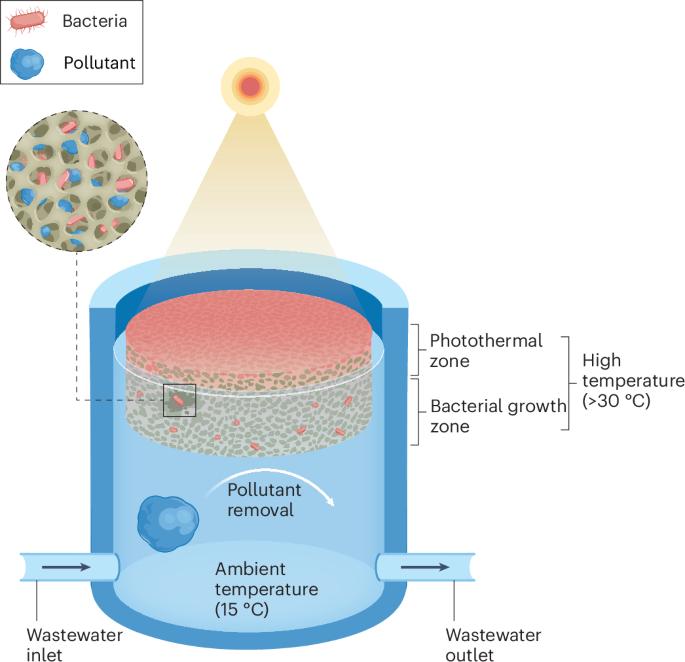太阳能强化生物废水处理
IF 27.1
1区 环境科学与生态学
Q1 ENVIRONMENTAL SCIENCES
引用次数: 0
摘要
废水生物处理是工业和城市污水修复的关键工艺;然而,在低温环境条件下(≤15℃),处理性能明显下降。现在,研究人员报告了一种太阳能热转换策略,通过有效地将太阳能转化为热能,在高温(>30°C)下维持细菌微生态位。本文章由计算机程序翻译,如有差异,请以英文原文为准。

Solar-enhanced biological wastewater treatment
Biological wastewater treatment is a key process for industrial and municipal wastewater remediation; however, treatment performance declines notably under low-temperature environmental conditions (≤15 °C). Now, researchers report a solar–thermal conversion strategy that sustains the bacterial micro-niche at a high temperature (>30 °C) by efficiently converting solar energy into thermal energy.
求助全文
通过发布文献求助,成功后即可免费获取论文全文。
去求助
来源期刊

Nature Sustainability
Energy-Renewable Energy, Sustainability and the Environment
CiteScore
41.90
自引率
1.10%
发文量
159
期刊介绍:
Nature Sustainability aims to facilitate cross-disciplinary dialogues and bring together research fields that contribute to understanding how we organize our lives in a finite world and the impacts of our actions.
Nature Sustainability will not only publish fundamental research but also significant investigations into policies and solutions for ensuring human well-being now and in the future.Its ultimate goal is to address the greatest challenges of our time.
 求助内容:
求助内容: 应助结果提醒方式:
应助结果提醒方式:


